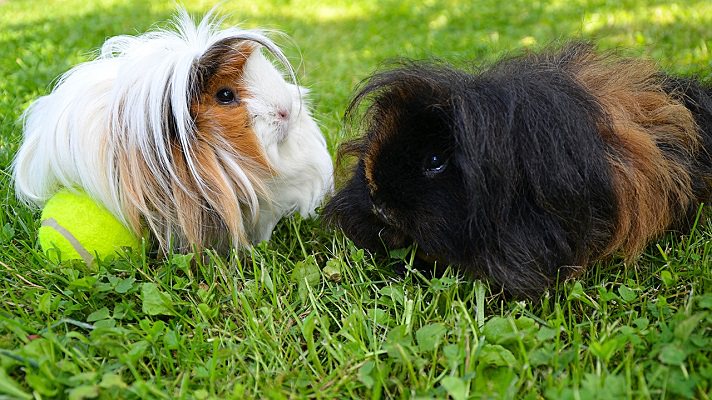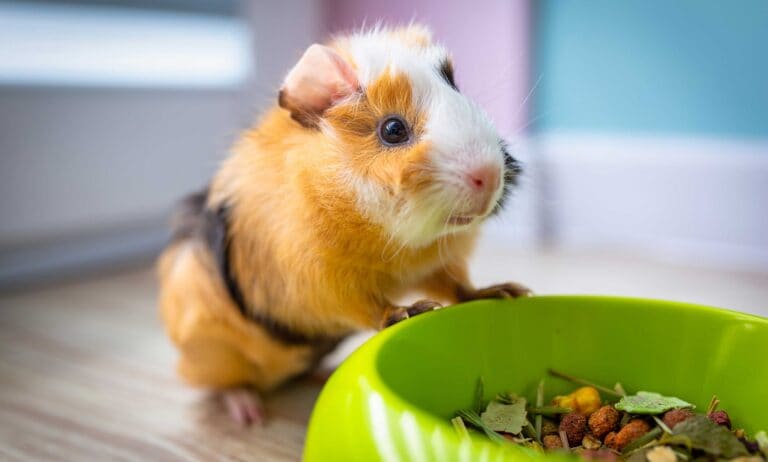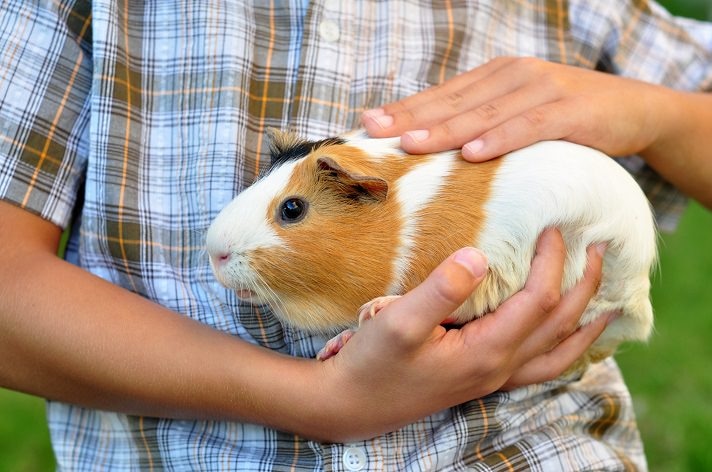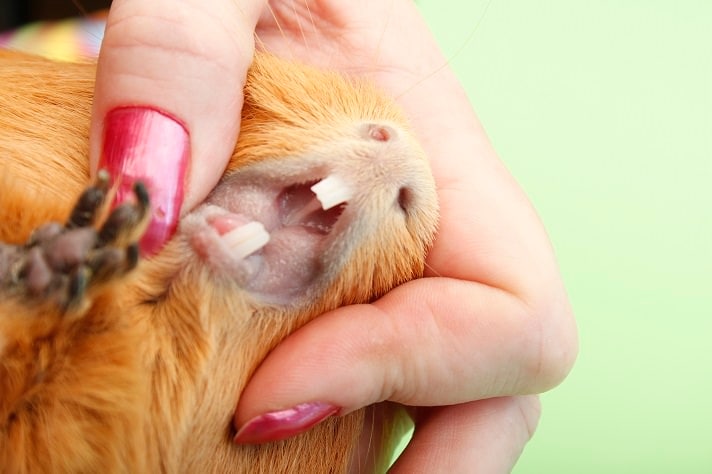Guinea pigs are delightful pets who also can be fragile and sensitive to stress. Change and lacking creature comforts can affect cavies a lot in a short amount of time.
“Guinea pigs can be stressed by changes in temperature or in habitat, especially if new pigs are introduced to the group,” says Lori Hageman, DVM, owner of Ark Pet Hospital in Antioch, California.
To best care for your guinea pigs, and to encourage a long and happy life for them, learn guinea pig stress signs and how to improve their feelings of safety and security.
Guinea Pig Stress Signs
It’s difficult to help your stressed pet if you’re unsure what to look for. The good news is that your small animal’s behavior is the best indicator for how he’s doing.
“The signs can range from aggressive behavior, such as head tossing or teeth baring, to depression, lethargy and inappetence,” Dr. Hageman says.
Be aware of the following guinea pig stress signs:
- Hiding a lot and refusing to come out of the nest box
- Sleeping a lot
- Nervousness
- Irritability
- Not wanting to be handled
- Freezing
- Poor appetite
- Hair loss
- Baring teeth and hissing or chattering
- Head tossing
Reducing Guinea Pig Stress
“Trying to find the cause of the stress is the most important way to reduce it,” Dr. Hageman says.
One way to prevent guinea pig stress signs in the first place is to provide your pet with a comfortable, appropriate-sized cage and guinea pig house located in a quiet area of your home. MidWest Guinea Habitat guinea pig home is one option that offers 8 square feet of living space and 1-inch bar spacing. It even folds flat for storage and travel.
Keep dogs and cats away from your guinea pig’s cage. Because guinea pigs are prey animals, seeing larger animals approach the cage can be very stressful.
Handling your guinea pig can be stressful for your pet if he’s not used to it. Start slowly, use a soothing voice and keep sessions short in the beginning. Follow each time of handling by returning him to his cage and giving him solo time to relax.
Always supervise children when they handle your guinea pig, and make sure they know how to be gentle and make your cavy feel secure. Be sure to give your pet time to relax and not be handled—everyone needs some alone-time!
These social animals do best with cavy friends, so provide your guinea pig with a cage mate. The recommended combination is same-sex cage mates, although males fare best with cavies they’ve known since birth. When housing male and female guinea pigs together, make sure the male is neutered.
“Introduce changes into your pig’s environment slowly,” Dr. Hageman says. “Add new members by putting the new one in his own cage and put that cage near main habitat until they have acclimated to each other. Introduce new foods and new cage items the same way.
“If your pig is showing stress and you just added a new pig to the group,” she adds, “then take the stressed pig out of the situation and house him alone.”
Mental and physical stimulation can help reduce guinea pig stress signs, so provide your curious pet with toys and appropriate chew items. Rotate toys out—slowly, as Dr. Hageman recommends—to keep your small friend from getting bored.
Dietary changes also can increase guinea pig stress, so go slowly. Make sure you’re providing a nutritionally balanced diet along with plenty of hay to gnaw on.
If your small pet seems ill, take him to an exotics veterinarian right away.
By: Sandy Chebat
Share:









